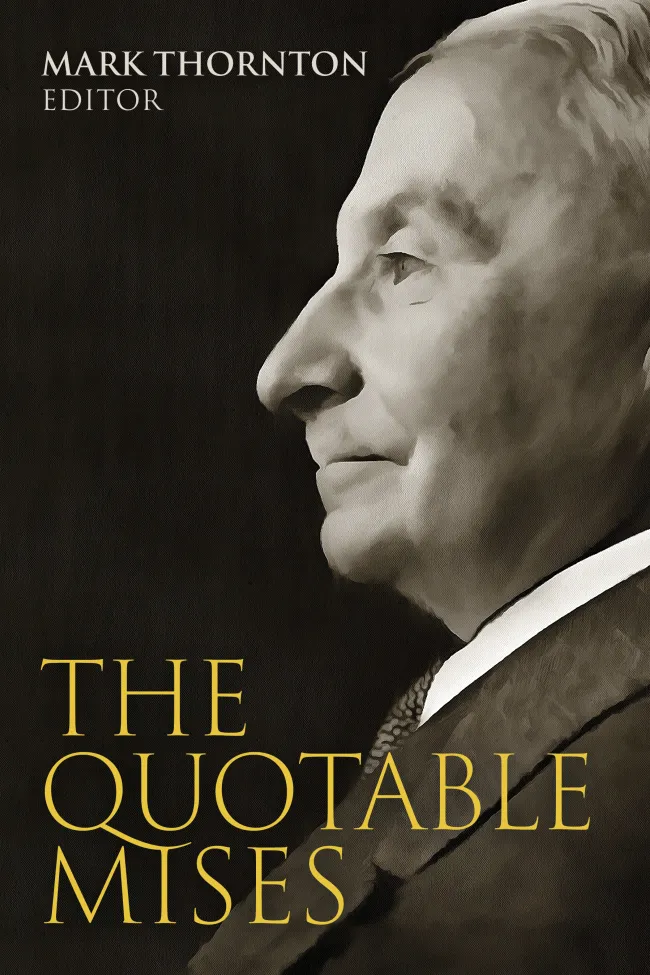Ludwig von Mises was the greatest economist of the twentieth century, but often readers are reluctant to tackle his major works. They fear that they will be unable to follow that abstract and relentless theoretical progression of, e.g., Human Action and The Theory of Money and Credit. For readers like this, and for anyone else who admires Mises, The Quotable Mises is ideal.
It transpires that Mises had a rare gift. His economic analysis was often abstract, true enough; but he was able to express his ideas in clear and striking ways, often with epigrammatic force. The gift is all the more remarkable because English was not Mises’s native language.
The distinguished Austrian economist Mark Thornton has collected a large number of Mises’s comments, arranging them according to topics that range through the alphabet from “Action” to “Youth.”
As readers will discover, Mises again and again penetrates to the heart of an issue with a few words. He says, e.g., “What is lacking in the underdeveloped nations is not knowledge, but capital.” More generally, “There are no means by which the general standard of living can be raised other than by accelerating the increase of capital as compared with population.”
Mises’s insights often extend beyond the strictly economic. He says, “Plato was anxious to find a tyrant who would use his power for the realization of the Platonic ideal state. The question whether other people would like what he himself had in store for them never occurred to Plato. ” Mises remarks of Lenin that he was “as great a stranger to the work of the bourgeoisie as a Hottentot to the work of an explorer taking geographical measurements.”
Readers of The Quotable Mises will gain a grasp of the essential elements of Mises’s outlook on the world.

No content found

Mark Thornton is the Peterson-Luddy Chair in Austrian Economics and a Senior Fellow at the Mises Institute. He is the book review editor of the Quarterly Journal of Austrian Economics, and has authored seven books and is a frequent guest on national radio shows.
Silver isn’t a “Giffen good.” It’s a case of shifting demand, not broken economics.
Although Adam Smith is well-known for emphasizing division of labor, his analysis was woefully incomplete, as Dr. Mark Thornton points out.
Mark Thornton presents a timely interview with Elijah K. Johnson that underscores how quickly “melt-ups” can flip into sharp corrections.
Auburn, Al: Mises Institute, 2005

